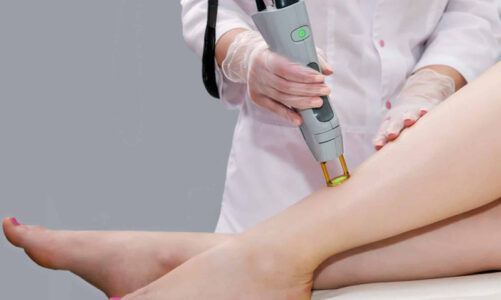Key Takeaways:
- In times of dental emergencies, having immediate access to an emergency dentist is crucial.
- Dental emergencies include severe toothaches, fractured or knocked-out teeth, oral infections, and dental abscesses.
- Toothache: Rinse mouth, floss gently, and contact an emergency dentist if pain persists.
- Knocked-out Tooth: Carefully handle the tooth, try reinserting it or place it in milk or tooth preservation solution before seeking dental care.
- Broken Tooth: Rinse mouth, apply gentle pressure for bleeding, use cold compress, and contact an emergency dentist.
- Timely dental care is crucial to prevent complications and save damaged teeth.
- To find an emergency dentist, research local dentists, ask for recommendations, and check credentials and reviews.
- Consider availability, specialized emergency dental services, and insurance and payment options when choosing an emergency dentist.
- Manage pain and discomfort with warm saltwater rinses, cold compresses, and over-the-counter pain relievers.
- Handle a knocked-out tooth by gently rinsing, attempting reinsertion, or storing it in milk or a tooth preservation solution before seeking dental care.
- Take preventive measures to minimize the risk of future dental emergencies.
Why Do You Need an Emergency Dentist?
In times of dental emergencies, having immediate access to an emergency dentist is crucial. Dental emergencies can occur unexpectedly and cause immense pain or discomfort. Whether it’s a severe toothache, a knocked-out tooth, or a broken tooth, seeking prompt dental care can help alleviate pain, prevent further damage, and preserve your oral health.
- Understanding Dental Emergencies
Dental emergencies refer to any situation that requires immediate attention from a dental professional to alleviate pain, stop bleeding, or prevent further damage. Common dental emergencies include severe toothaches, fractured or knocked-out teeth, oral infections, and dental abscesses.
It’s important to understand the signs of a dental emergency to avoid delaying treatment. If you experience severe pain, bleeding, swelling, or any other alarming symptoms, it’s best to contact an emergency dentist right away.
- Common Dental Emergencies and How to Handle Them
Knowing how to handle common dental emergencies can make a significant difference in the outcome of the situation. Here are some common dental emergencies and the immediate steps you can take:
Toothache: Rinse your mouth with warm water and gently floss around the affected tooth to remove any debris or food particles that may be causing the pain. If the pain persists, avoid using aspirin directly on your tooth or gums, as it can cause damage. Instead, contact an emergency dentist for further examination.
Knocked-out Tooth: Carefully pick up the tooth by the crown, avoiding touching the root. Rinse the tooth gently with water, but do not scrub or remove any attached tissue fragments. If possible, try to reinsert the tooth back into its socket and hold it in place while seeking immediate dental care. If reinsertion is not possible, place the tooth in a container of milk or a tooth preservation solution and get to the emergency dentist as soon as possible.
Broken Tooth: Rinse your mouth with warm water to clean the area. If there is bleeding, apply gentle pressure with clean gauze or a damp tea bag. Use a cold compress on the affected area to reduce swelling and take over-the-counter pain medication if necessary. Contact an emergency dentist for further evaluation and treatment.
- The Importance of Timely Dental Care
Timely dental care is crucial in dental emergencies to prevent further complications and ensure proper healing. Delaying treatment can lead to worsening pain, infection, and potential tooth loss. Seeking immediate dental care from an emergency dentist can help alleviate discomfort, prevent the spread of infection, and increase the chances of saving a damaged tooth.
Additionally, prompt dental care allows the dentist to assess the situation and provide appropriate treatment options. The earlier the diagnosis, the more conservative the treatment can be, saving you from more complex and costly procedures in the future.
How to Find an Emergency Dentist
When faced with a dental emergency, finding a reliable emergency dentist can be a lifesaver. Here are some steps to help you find an emergency dentist:
- Researching Local Dentists
Start by researching local dentists in your area who offer emergency dental services. Look for dentists who have experience in handling dental emergencies and have a positive reputation among patients. Reading online reviews and checking their websites can provide valuable insights into the quality of their services.
Make a list of potential emergency dentists near you, noting down their contact information and office hours.
- Asking for Recommendations
Reach out to your family, friends, or coworkers for recommendations. Personal referrals can help you find trusted emergency dentists who have delivered satisfactory experiences. Ask about their overall satisfaction with the dentist, the quality of care provided during emergencies, and the professionalism of the staff.
Take note of any recommendations that align with your research from the first step.
- Checking Credentials and Reviews
Before finalizing your choice, verify the credentials of the emergency dentists on your list. Ensure they are licensed and have received proper education and training in emergency dental care. You can check this information on their websites or by contacting your local dental association.
Read online reviews and testimonials from other patients to gauge their experiences and satisfaction with the emergency dentist. Look for positive feedback regarding promptness, professionalism, and successful treatment outcomes.
Taking the time to research, ask for recommendations, and check credentials and reviews can greatly increase the chances of finding a reliable emergency dentist who will provide the care you need during dental emergencies.
What to Consider When Choosing an Emergency Dentist
Choosing the right emergency dentist involves considering several factors that ensure you receive timely and effective care. Here are some key considerations:
- Availability and Accessibility
Look for an emergency dentist who offers convenient office hours and is easily accessible in case of emergencies. Consider their availability during evenings, weekends, and holidays, as dental emergencies can happen at any time. Opt for a dental practice that offers emergency hotline services for immediate assistance outside of regular office hours.
- Specialized Emergency Dental Services
Not all dentists are equipped to handle all types of dental emergencies. Some dentists specialize in certain areas of emergency dentistry, such as endodontics or oral surgery. If you have specific dental conditions or concerns, ensure that the emergency dentist you choose has the necessary expertise and equipment to address your needs.
- Insurance and Payment Options
Consider your insurance coverage and the payment options provided by the emergency dentist. Check if the dentist accepts your insurance plan and if they offer flexible payment plans for out-of-pocket expenses. Discuss the cost of emergency dental treatments and inquire about any potential additional charges before committing to a particular dentist.
Tips for Dealing with Dental Emergencies
While finding an emergency dentist is essential, knowing how to manage dental emergencies before reaching the dental office can make a significant difference. Here are some helpful tips:
- Managing Pain and Discomfort
If you experience a toothache or dental pain, rinse your mouth with warm saltwater to reduce inflammation. Apply a cold compress to the affected area to alleviate pain and reduce swelling. Over-the-counter pain relievers can also temporarily relieve discomfort until you can see the emergency dentist.
- How to Handle a Knocked-Out Tooth
If you have a knocked-out tooth, handle it with care and avoid touching the root. Rinse it gently under running water to remove any debris. Try to reinsert the tooth into the socket, biting down on a clean cloth or gauze to hold it in place. If reinsertion is not possible, place the tooth in a container of milk or a tooth preservation solution and seek immediate dental care.
- Preventive Measures for Future Dental Emergencies
While dental emergencies can happen unexpectedly, taking preventive measures can help minimize the risk. Maintain good oral hygiene by brushing twice a day, flossing daily, and attending regular dental check-ups. Avoid chewing on hard objects or using your teeth as tools, and wear a mouthguard during sports activities to protect your teeth from trauma.
FAQ
Question: Why is having immediate access to an emergency dentist crucial? – Having immediate access to an emergency dentist is crucial because dental emergencies can occur unexpectedly and cause immense pain or discomfort. Prompt dental care can help alleviate pain, prevent further damage, and preserve oral health.
Question: What are some common dental emergencies? – Common dental emergencies include severe toothaches, fractured or knocked-out teeth, oral infections, and dental abscesses.
Question: How should I handle a toothache? – To handle a toothache, rinse your mouth with warm water, gently floss around the affected tooth, and contact an emergency dentist if the pain persists.
Question: What should I do if my tooth gets knocked out? – If your tooth gets knocked out, carefully handle the tooth by the crown, try to reinsert it if possible, or place it in milk or a tooth preservation solution before seeking dental care.
Question: How should I handle a broken tooth? – To handle a broken tooth, rinse your mouth with warm water, apply gentle pressure for bleeding, use a cold compress, and contact an emergency dentist for further evaluation and treatment.
Question: Why is timely dental care important in emergencies? – Timely dental care is important in emergencies to prevent further complications, alleviate discomfort, and increase the chances of saving a damaged tooth. Delaying treatment can lead to worsening pain, infection, and potential tooth loss.
Question: How can I find an emergency dentist? – To find an emergency dentist, research local dentists in your area, ask for recommendations from family and friends, and check credentials and reviews to ensure reliability and quality of care.
Question: What factors should I consider when choosing an emergency dentist? – When choosing an emergency dentist, consider their availability and accessibility, specialized emergency dental services they offer, and their acceptance of insurance and payment options.
Useful Resources:
- American Dental Association
- American Academy of Cosmetic Dentistry
- American Association of Endodontists
- American Association of Oral and Maxillofacial Surgeons
- Centers for Disease Control and Prevention – Oral Health
- American Dental Association – MouthHealthy
- World Health Organization
- National Institutes of Health




